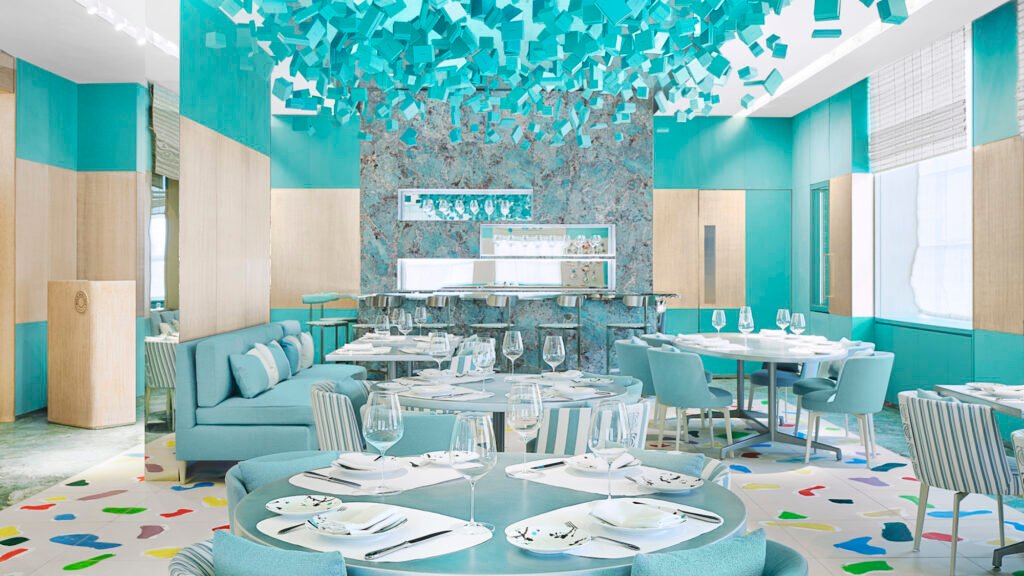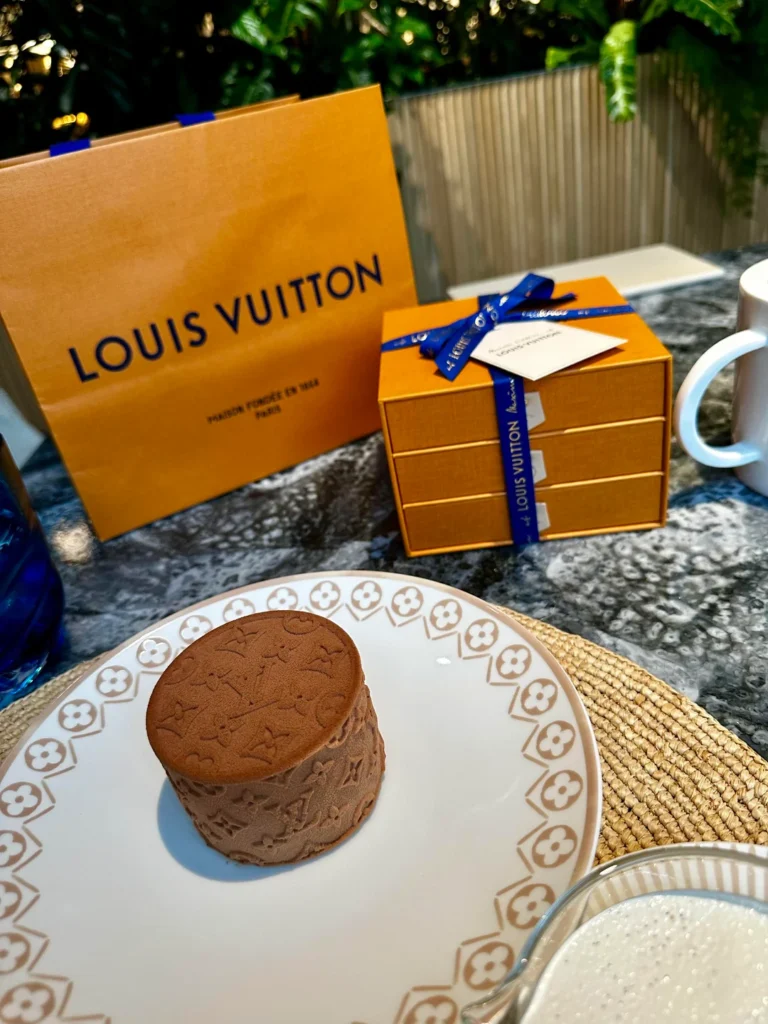Luxury brands have always been synonymous with exclusivity, elegance, and an aspirational lifestyle. Today, many iconic names in fashion and luxury are extending their reach beyond their flagship stores and haute couture collections into the hospitality sector. Among the most notable examples are the Prada Café in London’s Harrods, the Tiffany Blue Box Café, and Café Louis Vuitton in Paris. Every single one demonstrates the growing success of this trend.
A Natural Extension of Brand Identity
The Prada Café at Harrods is a textbook example of how a luxury brand can translate its aesthetic and ethos into the hospitality world. Designed with the same meticulous attention to detail as Prada’s fashion collections, the café features sleek, minimalist decor, often infused with the brand’s signature green and classic Italian touches. Patrons don’t just sip coffee; they experience a slice of Prada’s world.
Similarly, the Tiffany Blue Box Café allows customers to live the fantasy of Breakfast at Tiffany’s. With interiors drenched in the iconic robin’s-egg blue, this café blurs the line between dining and brand immersion. Guests are surrounded by elegant Tiffany tableware, ensuring every detail is on-brand.
Café Lousi Vuitton, set within the LV Dream exhibition in Paris, offers a dual experience-culinary artistry paired with the brand’s rich heritage. Diners are treated to interiors that echo Louis Vuitton’s iconic monogram and motifs. Thus blending Parisian sophistication with a global luxury appeal.
Each of these establishments turns what could be a simple coffee break into a multi-sensory brand encounter. Customers don’t just engage with the products; they connect emotionally and experientially with the brand’s narrative.

Why Luxury Brands are Betting on Hospitality
1. Strengthening Brand Loyalty
Luxury cafés provide brands with a powerful tool to deepen their relationship with customers. By offering memorable, curated experiences, these spaces become touchpoints for forging emotional connections, enticing customers to stay longer within the brand’s universe.
2. Expanding Accessibility Without Diluting Prestige
While a designer handbag or piece of jewelry might be out of reach for many, a coffee or afternoon tea offers an accessible entry point to the brand. This approach broadens the audience while maintaining the aura of exclusivity that luxury brands thrive on.
3. Tapping into Experiential Spending Trends
Millennials and Gen Z prioritize experiences over material possessions, and luxury cafés cater perfectly to this demand. From Instagram-worthy interiors to bespoke menus, these spaces provide sharable, experiential value.
4. Enhancing the Shopping Experience
By integrating cafés within their flagship stores or exhibitions, brands create holistic retail environments. After all, nothing complements browsing a new collection quite like a perfectly brewed espresso in a setting that feels like an extension of the showroom.
Keys to Success

Design Excellence: Whether it’s Prada’s clean lines or Tiffany’s whimsical charm, the interiors are carefully crafted to reflect the brand’s identity.
Premium Quality: The food and beverage offerings are as meticulously curated as their products. Louis Vuitton’s café, for instance, offers pastries designed by Michelin-starred chefs.
Exclusivity: Reservations, limited menus, and unique locations all add to the feeling of exclusivity, making each visit a coveted experience.
Storytelling: These cafés are not just places to eat — they tell a story. Every detail, from the plate designs to the background music, aligns with the brand’s
The future of luxury hospitality
As luxury brands continue to innovate, their ventures into hospitality are likely to grow. Beyond cafés, we’re seeing expansions into hotels, private clubs, and even travel experiences. All of which allow brands to extend their influence and foster loyalty.
The Prada Café, Tiffany Blue Box Café, and Café Louis Vuitton prove that luxury is no longer confined to material goods – it’s an experience. As these brands craft environments where every sip, bite, and glance feels like a brush with opulence, they set the stage for a new era where lifestyle and luxury intertwine seamlessly.
For customers, it’s not just about coffee; it’s about sipping on a piece of the dream. And for brands, it’s a masterstroke in blending commerce with culture, ensuring their relevance and allure in a rapidly evolving world.
By leveraging their rich legacies and unparalleled design sensibilities, luxury brands are turning cafés into much more than dining spaces. They are destinations, experiences, and, most importantly, symbols of aspirational living. And in a world where experiences reign supreme, this approach feels like the ultimate power

